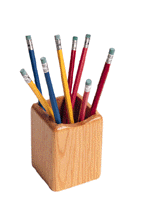
|
Highly recommended.
Brimming with clear and practical exercises, Kowit's book is the best 'How to' book
to help you start writing poetry.
My favorite chapter ('first among equals') is Chapter 5 on Awful Poems,
where Kowit leads us cheerily through the frequent mistakes that appear in our poems,
with exercises to correct them.
|
Altogether Kowit gives us 30 chapters, in the areas of:
 How to Begin.
How to Begin.
 Memory (memory being the loam in which
so many of our poems are rooted).
Memory (memory being the loam in which
so many of our poems are rooted).
 The Secret of Writing (no, I won't tell you - read the book).
The Secret of Writing (no, I won't tell you - read the book).
 Music and Metaphor (excellent for making your poems more memorable).
Music and Metaphor (excellent for making your poems more memorable).
 Experiment and Tradition (rich with ideas and approaches to both
recent and classic forms of poetry).
Experiment and Tradition (rich with ideas and approaches to both
recent and classic forms of poetry).
 Themes (including the political, the desired, and the lost).
Themes (including the political, the desired, and the lost).
Read a chapter a day for a month. Each day, think about one of the exercises
in the chapter you last read. At the end of the day (or the start of the next
morning) write what comes up -- maybe it will be a poem, or at least a first draft.
After such a month you may well be ready to put into practice the final chapters of:
 Nuts and Bolts on poetry workshops and publishing your poetry.
Nuts and Bolts on poetry workshops and publishing your poetry.
 Poetry index.
Poetry index.
 Books on How to Read.
Books on How to Read.
 Books on How to Write.
Books on How to Write.
 How to Listen.
How to Listen.
 How to Write - A Recipe.
How to Write - A Recipe.
 Haibun.
Haibun.
 Haiku.
Haiku.
 Hay(na)ku.
Hay(na)ku.
 Rengay.
Rengay.
 Tanka.
Tanka.
 Ghazal.
Ghazal.
 Pantoum.
Pantoum.
 Sestina.
Sestina.
 Sonnet.
Sonnet.
 Villanelle.
Villanelle.
 Books of Poetry Form.
Books of Poetry Form.
 Kim Addonizio.
Kim Addonizio.






